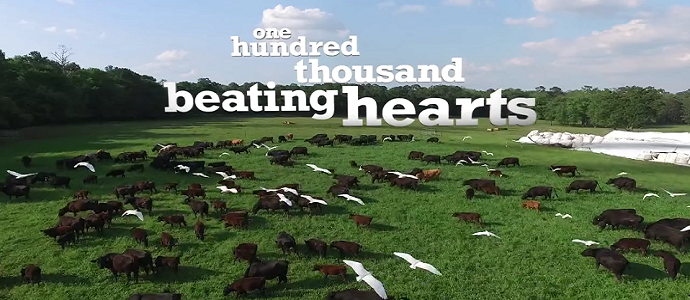 This year my Good Friday observance was in a large theater in Portsmouth, watching, with 800 other people, an array of short films about the human crucifixion of the earth, our shared body. The showing was a benefit for our Seacoast Land Trust.
This year my Good Friday observance was in a large theater in Portsmouth, watching, with 800 other people, an array of short films about the human crucifixion of the earth, our shared body. The showing was a benefit for our Seacoast Land Trust.
In all the films there was tragedy. And in all of them – there was hope as well, casting its grow light over us.
In some , those who were the crucifiers changed themselves. And in others, those who were standing up for themselves and the earth, had some justice.
One of those who changed was a farmer in Georgia, whose generations-old farm had become industrialized through the pressures of the era, conforming in order to survive. But inside he was deeply troubled by the misery he saw in his animals – cows and chickens. So he changed.
Easy? O dear God no! He went from a healthy profit every year to a stretch of years with losses, as he took loans to build a meat processing plant, and as he learned more and more about healthy land as the health of creatures.
He changed the way his animals lived and what he feeds them. He changed the way he treats his soil and what he feeds it. He brought in more animals, sheep and goats, because he learned how the small ruminants and the large ones (cattle) protect each other from parasites that plague them. And he took down fences. He says his chickens could walk all the way to Atlanta if they wanted to.
It’s a far cry now from the days when his chickens lived pushing up against each other, drinking from a pipe, and sick from so many illnesses and from not moving. And his healthy cows now look happy! His story is told in the film, One Hundred Thousand Beating Hearts, on Vimeo.
His neighbors think he’s crazy but he’s making good profits again, and two of his daughters and their husbands have come home to farm with him.
Below the equator, a Peruvian woman uses her small farm in the Andes mountains as a wedge against the encroachment of a mining company that is poisoning the water in their lakes and streams. She and the peasants in her area had to go to court. It took years. And they were beaten. And found guilty in the local court, where the companies lodged false charges. But at last, the high court gave them justice, and stopped the poisoning of their water.
Around the world, poor women in India found work in Fair Trade factories, with solar panels and no poison dye spillage in their streams.
In Texas, a family was slowly persuaded, over some years, to remove a dam they themselves had built, because it was better for their earth as well as the whole earth.
And on our border with Mexico, a scientist showed how the wall interrupts the migration of so many species, and stops the needed seeding of vital plants that comes from the traveling of species. That five minute film should be shown on the nightly news, in my opinion.
Good Friday always comes down to this: the tough, the bullies, the folks with their eyes fixed on the almighty dollar, do the damage; and the local folks, whose life is committed to the land and to each other, suffer, and then rise to bring about a new day.
Sometimes all of this happens in the same person, the same family, and the struggle is waged over time and in faith, with so much courage to change. Sometimes it happens in one culture, between rich and poor. And sometimes the struggle is conflict between people and corporations. Finding our way to the human side of life is what rising is about.
There must be thousands of places where the crucifixion of the earth is happening. And each of them, like the cross, wherever it is, is at the center of the world, a world that is always hoping, with baited breath, to be able to rise again.
Easter’s Alleluias will be rising everywhere. And I’ve already heard a few of them —
_____________________________________________________________________________
Image: from One Hundred Thousand Beating Hearts. Permaculture Research Institute.










